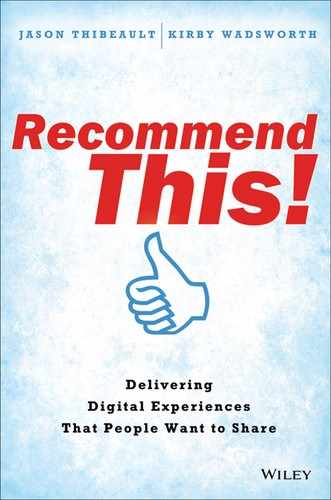Preface: Is Digital Marketing Dead?
If it ever truly existed, yes, digital marketing is definitely dead.
That’s because there’s no real distinction anymore between traditional and digital marketing.
All audience experiences are intrinsically digital by connecting in some way to the myriad of new channels like websites, social media, and apps. These experiences change the ways through which organizations form relationships with their audiences—all relationships must bridge the real and virtual worlds. Organizations are increasingly being forced to accept the new order of things. To form and transform relationships through digital channels, we must embrace the concept that matters most: the sum of the audience’s experiences across the entire spectrum of touch points. We must find ways to translate our stories into real-life experiences using nothing but those digital touch points. We must engage the audience at a real-life, emotional level almost from the very moment we touch them. Perhaps equally important is the realization that organizations must maintain that real-life, emotional connection throughout the engagement process, while reinforcing the intellectual and emotional responses from audience interaction as they visit again and again . . . until they form an enduring bond of loyalty.
We must transform marketing from talking at audiences to speaking with them. We must shift our attention from screaming, “Look at me!” to quietly asking, “How are you doing?”
We cannot simply bolt digital stuff onto our marketing plans, or hire an intern to do something digital. The entire organization must evolve to embrace the power that digital channels and technologies provide us. As both consumers and marketers, digital is at the core of our lives now. We interact with digital tools and technologies throughout our day. Employees, processes—the entire organizational gestalt—must transform so that every interaction, live or virtual, is aligned to translate the brand’s story into a real-life experience for the audience . . . but within digital channels.
Are we suggesting that digital should replace traditional marketing? No. We are saying there’s really no distinction anymore because digital has fundamentally changed consumer expectations. People now feel that an organization without a website or a Facebook profile is somehow “less” than those that have these resources. That’s because digital has given people a way, for the first time in history really, to connect easily with an organization, be it to laud and praise or vilify and complain. That digital availability is now becoming an audience expectation, which is why authenticity must become our lifeblood.
If the interaction between our audience and our staff, services, and processes does not align with our story, not only will our audience notice, but worse, they will tell each other! There is no getting away from it—digital has changed the name of the game from “sell” to “help with.” People are tired of the vultures.
As an interactive medium through which audiences can connect with organizations 24/7/365, the stories we tell must be good, engaging, and emotional. If we come to this digital party with nothing to talk about but ourselves, our products, our features, and our benefits, they won’t let us past the front door. Our audience members want us to care about, and be involved in, the issues they face. We must add to the conversation by understanding the issues and having an opinion on them. We must demonstrate not just on a monthly basis, when the magazine with our ad in it used to hit the stands, but on a daily, hourly, even per-minute basis that we belong in the conversation as an active participant . . . not the guy hovering at the door as you approach the car dealership.
Whatever an organization’s underlying purpose, it must learn to listen, empathize, contribute, solve, and evolve as the organization strives to develop long-term relationships with the audience. Relationships are what truly differentiate organizations in this new, digitally transformed world. Relationships cannot be copied by competitors. Relationships, when cultivated and valued, can’t be stolen. That’s why, more than anything, the first steps in the journey to build relationships must be taken with no ambition other than to do one thing—to help.
